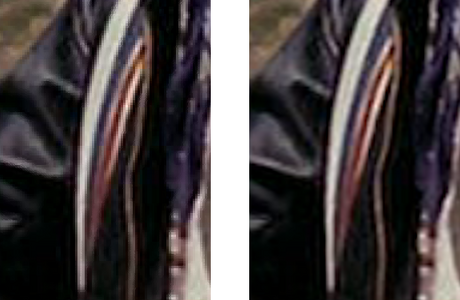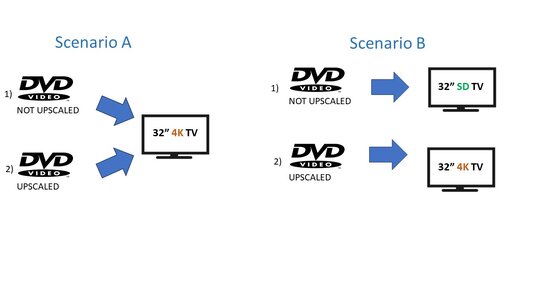Attached is a zoom on Peter Fonda's jacket from the Easy Rider DVD. One in native and the other an upscale from it to 4K. Exactly the same disc; one without upscaling and one with. It's what happens with bicubic upscaling. There are mathematical reasons why it appears to find detail where none exists — what it's really doing is finding detail that exists but the human eye cannot perceive it.I think you might need to explain this, because the eye test would appear to contradict it. How is it impossible for content that has been upscaled to look worse than content displayed at its native resolution?
...and just to clarify, in my original discussion, "native resolution" did not mean displayed at native resolution on a 4K screen as a little image in the middle. It meant displayed at native resolution on an equivalent sized screen whose resolution matches the source.
Bicubic is a fairly standard upscale. Most higher quality players have more sophisticated upscales that will dig out even better images. There are people who spend their entire career on improving upscalers.



